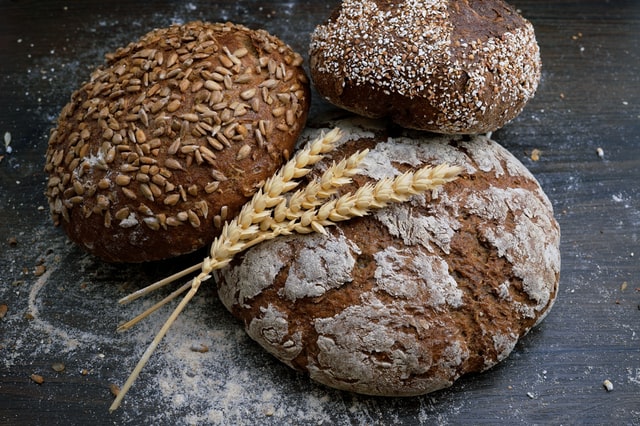Gluten, a protein found in wheat, barley, and rye, is celiac disease’s number one foe. If you have celiac disease, ingesting even a little quantity of gluten may cause damage to your small intestine and health complications.
But is gluten hazardous for those without celiac disease? And may consume a lot of gluten increase the likelihood of developing celiac disease in the future? Dr Alberto Rubio Tapia outlines the aetiology of celiac disease and if gluten consumption plays a factor.
Why does celiac disease occur?
Some individuals get the celiac disease after consuming gluten, although gluten is not solely to blame. The complicated causes of celiac disease encompass several risk factors, including heredity.
Dr Rubio Tapia explains that almost all people with celiac disease have one of two particular gene mutations known as DQ2 or DQ8. “However, there are other risk factors for celiac disease, including environmental factors and past infections. Several studies have indicated that your race and gut microbes can influence your likelihood of developing celiac disease.
Can celiac disease occur suddenly?
If you do not have any risk factors, eating a dish of pasta will not cause celiac disease. But it is possible to acquire celiac disease as an adult, even if you have consumed gluten your whole life without issue.
According to Dr Rubio Tapia, it was formerly believed that individuals were born with the risk of celiac disease and would get it as soon as they consumed gluten. However, we now know that celiac disease may arise at any age.
Gluten intolerance: Gluten-free diet without celiac disease
Certain tests may aid in the diagnosis of celiac disease. However, what if these tests are negative and you do not have celiac disease, but consuming gluten still makes you feel terrible?
You may suffer from gluten sensitivity or gluten intolerance. These individuals have difficulty digesting gluten, although gluten does not cause intestinal harm. Examples of symptoms include:
- Abdominal discomfort.
- Bloating.
- Irritability or diarrhoea.
- Weakness and cognitive fog.
- Headaches.
- sickness or vomiting.
Dr Rubio Tapia explains, “Those with non-celiac gluten sensitivity feel ill after consuming gluten but test negative for celiac.” When gluten is removed from their diet, their symptoms disappear.
Even if you believe you have gluten intolerance, refrain from becoming gluten-free. Dr Rubio Tapia said, “Your physician may choose to test you for celiac disease to rule it out.” “However, for an accurate result, you must consume gluten before the test.”
Should I consume gluten-free meals if I do not suffer from celiac disease?
Even if you do not have celiac disease or gluten sensitivity, you may explore a gluten-free diet since it seems healthier. But wait a minute. Gluten-free foods are not inherently healthier than meals containing gluten. And frequent gluten consumption does not induce celiac disease in the absence of other risk factors.
Dr Rubio Tapia emphasises that gluten-containing foods have various nutritional advantages. If you do not have celiac disease, gluten is a healthy addition to your diet. Consume a variety of foods, including fruits, vegetables, cereals, legumes, and lean meat.”
Identification of celiac disease symptoms
The notion that celiac disease invariably causes diarrhoea is widespread. Dr Rubio Tapia explains that celiac disease affects the entire body, not just the digestive tract. Even if you do not experience diarrhoea, it is still possible to have celiac disease. “Many celiac patients never experience this symptom.”
In addition to digestive issues such as bloating, constipation, diarrhoea, and vomiting, people with celiac disease also experience:
- Bone or joint ache.
- Fatigue.
- Headaches.
- Infertility.
- Mental health conditions such as depression and anxiety.
- Skin rash.
When to see your healthcare professional
Before modifying your diet or omitting particular foods if you suspect you may have celiac disease, consult your healthcare professional. Additionally, you should address your risk for celiac disease if you:
- A close relative with celiac disease, such as a parent or sibling.
- Other medical issues include diabetes type 1, liver illness, an autoimmune disorder, or thyroid disease.
- Celiac illness or non-celiac gluten sensitivity symptoms.
Dr Rubio Tapia said, “Celiac illness affects millions of Americans, and many are unaware they have it.” “Visit your doctor periodically to review your health and risk of acquiring illnesses such as celiac disease. Early celiac disease treatment reduces the risk of future health complications and keeps you feeling your best.”
